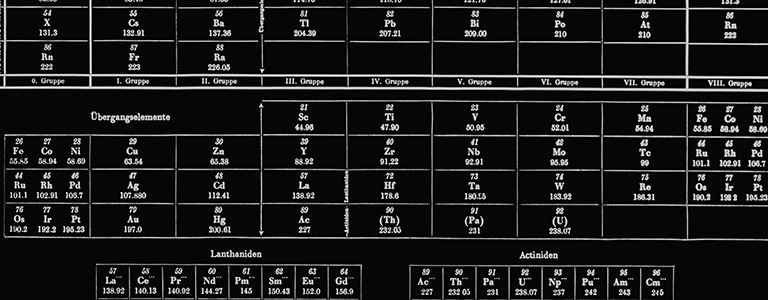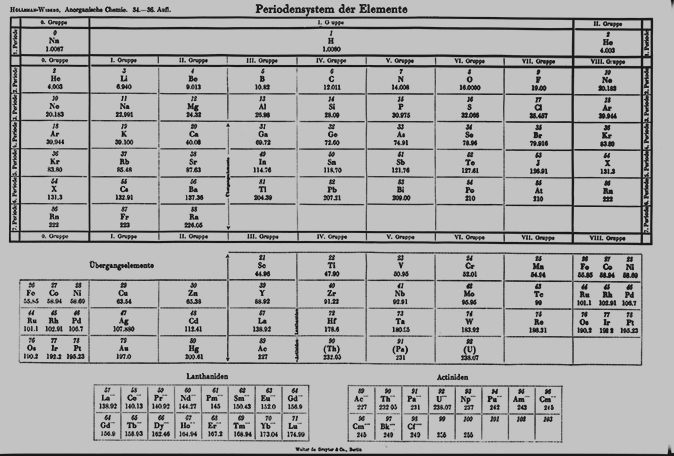Who has not seen it hanging from the ceiling in endless hours of chemistry lessons, the large Periodic Table of Chemical Elements with its symbols, atomic numbers and atomic weights? This system was chosen by the United Nations as the theme of 2019:
… focusing on the Periodic Table of Chemical Elements and its applications, the United Nations has recognized the importance of raising global awareness of how chemistry promotes sustainable development and provides solutions to global challenges in energy, education, agriculture and health … (IUPAC Statement).
The International Year of the Periodic Table of Chemical Elements (IYPT2019) celebrates the fascinating world language of chemistry and at the same time marks the 150th anniversary of the invention of the periodic table by Dmitri Ivanovich Mendeleev in 1869.
Photographical Institute, ETH Zurich: Periodic Table of the Elements, 1955 (PI_55-P-0040)
Currently the periodic table contains 118 discovered, generated and described elements of which 114 have a definitive name (Fontani, xxiv). This shows that the system has undergone constant change since its introduction in 1869. There are elements that can be renamed or rediscovered. Others occupy a certain place only temporarily and are later replaced by the “right” element, such as the “Helvetium” by Swiss physicist and radiologist Walter Minder. The periodic table therefore does not represent a rigid universe of chemical elements, but is a tool with which one can “predict” undiscovered elements on Earth and in the universe.
References:
Fontani, Marco; Costa, Mariagrazia; Orna, Mary Virginia: The lost elements the periodic table’s shadow side. New York: Oxford UP, 2015.
IUPAC Statement on the Year of the Periodic Table of Chemical Elements (Website of the International Union of Pure and Applied Chemistry, last visited 13.06.2018): https://iupac.org/united-nations-proclaims-international-year-periodic-table-chemical-elements/
Links:
UNESCO Webseite IYPT2019: http://www.iypt2019.org/
Peter van der Krogt offers a comprehensive website on the periodic table and its history: http://elements.vanderkrogt.net/

